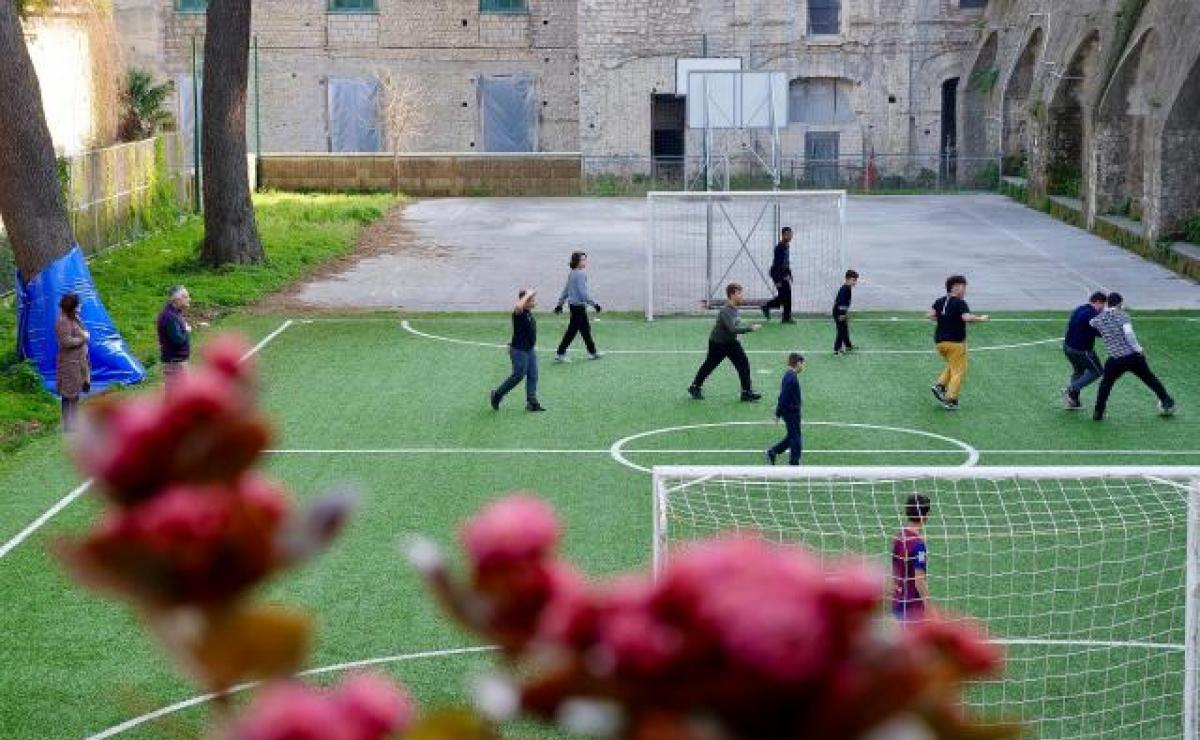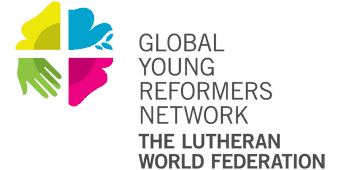COVID-19: Breaking the cycle of poverty for young people in Naples

The Evangelical Lutheran Church in Italy provides short-term aid and long-term opportunities for vulnerable families
(LWI) - In Italy, the first European country to be affected by the Coronavirus disease (COVID-19), restrictions are gradually being lifted to allow people greater freedom of movement. But for many residents living in the poorest parts of Naples, the pandemic has significantly worsened an existing circle of poverty, deprivation and social exclusion. The Evangelical Lutheran Church in Italy (ELCI) is reaching out to them with short and longer-term initiatives that are bringing hope to some of the city’s most vulnerable families.
The colorful Spanish quarter, tucked behind the port and one of the most popular shopping streets, is slowly returning to life after almost two months of enforced lockdown. Known as the beating heart of the city, where washing flaps from windows across narrow, winding streets and paint peels from the walls of dilapidated buildings, the area is home to thousands of vulnerable, unemployed young people, Italians and migrants, looking for causal cash-in-hand jobs or black-market opportunities.
Those who were able to find odd jobs in bars and restaurants or selling souvenirs to tourists have seen that source of income dry up. Many shop owners are unsure when and how they will be able to start trading again. Homeless shelters, drop-in centers and soup kitchens have been closed due to tight quarantine restrictions and the number of people dependent on food aid in the city has soared. ELCI, a member church of the Lutheran World Federation, is partnering with local Catholic charities and non-profit organizations to support those most in need.
Ecumenical partnership
Prior to the lockdown, the Lutheran congregation in Naples worked with a charity called ‘Villanova Street Angels’ (Angeli di Strada Villanova), buying bottled water for distribution to the homeless who gathered at collection points throughout the city. When these activities were suspended, the Street Angels switched to supporting one of the few soup kitchens that remained open in Naples throughout the quarantine period. The church is also helping by supplying food items, in particular dairy products, for the center run by the Catholic Sisters of St Vincent de Paul.
In the longer-term, ELCI is working with one of the best known local non-profit organizations, the Associazione Quartieri Spagnoli (AQS), supporting two educational projects to help young men and women break out of the cycle of poverty and unemployment. Two groups of children aged between 6 and 14 are offered twice weekly football training sessions, during which they not only improve their sporting abilities but also learn vital life skills including self-discipline, respect for others and conflict resolution.
Practical and emotional support
The church has also been supporting the families of some of these children by providing vouchers for food and other essential items. Project coordinator, Caroline von der Tann, says recipients of the vouchers often share their life stories, grateful for both the practical and emotional support during this time of unprecedented difficulties. “One woman told me she worked as a cleaner but was sent away at the start of the crisis and had no money for the rent,” she recalls. “She had a disabled daughter, a son who’d been in jail and a husband who’d lost his meagre income as a street vendor. Her eyes filled with tears as she told me she simply could not survive without our support.”
Most children from this area of the city leave school at 13 or 14 with low ambitions and few prospects for legal, long-term employment. Von der Tann says the football training with an experienced coach and tutor can teach values such as teamwork, self-esteem and commitment that offer an alternative sense of achievement and self-worth. “The physical exercise is important because otherwise they run the risk of sitting at home all day watching TV and eating junk food,” she says. “But they also learn to take responsibility for their actions and to make better life choices,” she adds.
As part of a broader initiative known as the ‘Butterfly Effect’, her church has also devised a follow up project offering individual mentoring to some of the adolescents enrolled in those training sessions. Parents, teachers and social service professionals will work together with Von der Tann to draw up personalized plans that identify problems, nurture talents and set specific, obtainable objectives for the students.
“ELCI has agreed to fund this project and we were in the process of identifying the students when the Coronavirus emergency hit,” Von der Tann explains. “We have tried to maintain contacts and financial support for these families over the past months, in the hope that we can start rolling it out as soon as life in our city returns to normal again,” she concludes.
